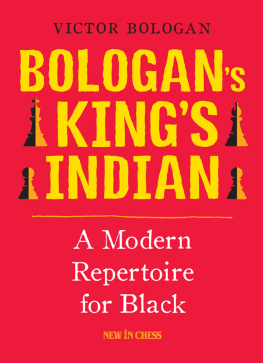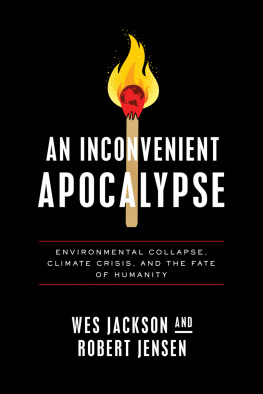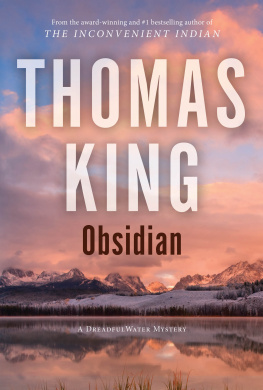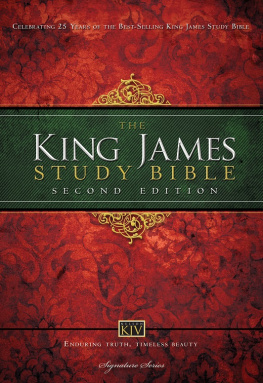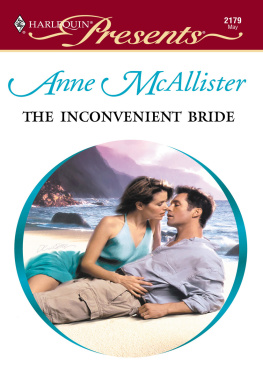Thomas King - The Inconvenient Indian
Here you can read online Thomas King - The Inconvenient Indian full text of the book (entire story) in english for free. Download pdf and epub, get meaning, cover and reviews about this ebook. publisher: Doubleday Canada, genre: Politics. Description of the work, (preface) as well as reviews are available. Best literature library LitArk.com created for fans of good reading and offers a wide selection of genres:
Romance novel
Science fiction
Adventure
Detective
Science
History
Home and family
Prose
Art
Politics
Computer
Non-fiction
Religion
Business
Children
Humor
Choose a favorite category and find really read worthwhile books. Enjoy immersion in the world of imagination, feel the emotions of the characters or learn something new for yourself, make an fascinating discovery.
- Book:The Inconvenient Indian
- Author:
- Publisher:Doubleday Canada
- Genre:
- Rating:4 / 5
- Favourites:Add to favourites
- Your mark:
- 80
- 1
- 2
- 3
- 4
- 5
The Inconvenient Indian: summary, description and annotation
We offer to read an annotation, description, summary or preface (depends on what the author of the book "The Inconvenient Indian" wrote himself). If you haven't found the necessary information about the book — write in the comments, we will try to find it.
The Inconvenient Indian — read online for free the complete book (whole text) full work
Below is the text of the book, divided by pages. System saving the place of the last page read, allows you to conveniently read the book "The Inconvenient Indian" online for free, without having to search again every time where you left off. Put a bookmark, and you can go to the page where you finished reading at any time.
Font size:
Interval:
Bookmark:
The Inconvenient Indian has been a work-in-progress for most of my adult life. Its origin dates back to at least the early 1970s, when I worked at the University of Utahs American West Center where Floyd ONeil rode herd on a motley crew of graduate reprobates that included myself as well as Greg Thompson, Laura Bayer, John Alley, Geno Defa, David Lewis, and Kathryn MacKay. Native history was the topic of research and conversation at the Center, and we spent our time reading oral histories and treaties, drawing maps, working with tribes in the Southwest, and engaging in running pranks that involved potatoes. Floyd introduced me to the discipline of history. More than that, he was a mentor and a friend who, along with Edward Lueders and William Mulder, professors in the English Department, helped to drag me through the rigours of a Ph.D. Floyd also introduced me to many of the historians and scholars whose work is a part of this book: Richard White, Alvin Josephy, Francis Paul Prucha, Patricia Limerick, David Edmunds (Cherokee), Brigham Madsen, Gerald Vizenor (Anishinaabe), S. Lyman Tyler, Terry Wilson (Potawatomie), Richard Hart, Louis Owens (Choctaw-Cherokee), Robert Berkhofer, and Arrell Morgan Gibson.
As important were the conversations that I had with fellow graduate students in the English departmentSteve Tatum, Robert Haynie, Bob King, and Barry Sarchettwho were engaged in the disciplines of western literature and western history. We all played on the English departments inter-mural softball team, the Hot Tamales, which contributed nothing to this book, but was fun nevertheless.
When I was working and studying in Salt Lake City, I met Leroy Littlebear (Blood) who was finishing a law degree at the university. We became friends, and when he returned to the University of Lethbridge in Lethbridge, Alberta, to head up the Native Studies Department, he offered me a job teaching Native literature and Native history. I spent the next ten years on the high Alberta prairies, braving the wind and the cold winters, working with Native and non-Native students, and hanging out with folks on the reserve. I even played (badly) in an Indian basketball league with Narcisse Blood (Blood), Martin Heavyhead (Blood) and Morris Manyfingers (Blood), in which tribal history was always a topic of conversation. My time in Lethbridge with colleagues such as Christine Miller (Blackfeet), Marie Small Face-Marule (Blood), Don Frantz, Meno Boldt, Alfred Youngman (Cree), Tony Long, and Amethyst First Rider (Blood) was an intensive course in contemporary reserve politics, oral history, small-town sociology, and very bad puns.
I should mention that I also met my partner, Dr. Helen Hoy, at the University of Lethbridge. Which just goes to show that treasures can be found in unlikely places.
Helen and I went on to the University of Minnesota in 1990, where I taught Native literature, got an interesting though not always pleasant crash course in urban Indian politics, and had the pleasure of working with other scholars on that campusCarol Miller (Cherokee), Alan Kilpatrick (Cherokee), Ron Libertus (White Earth Ojibway), Terry Collins, Jean OBrien (White Earth Ojibway), George Lipsitz, John Wright, Brenda Child (Red Lake Ojibway), Elaine and Lary May, and Carter Meland (White Earth Ojibway)whose thoughts and ideas are a part of this book.
I landed at the University of Guelph in Guelph, Ontario in the summer of 1995 and began the actual work of writing The Inconvenient Indian sometime in 2006. In that enterprise I had the help of a great many people, Native and non-Native, throughout North America, many whose work Ive read, and others who took the time to talk with mein many cases, pointing out the errors in my research and in my thinking: Jace Weaver (Cherokee), Linda Vandenberg, Daniel Fischlin, Ajay Heble, Jeannette Armstrong (Okanagan), Christine Bold, Basil Johnston (Anishinaabe), Ric Knowles, Drew Hayden Taylor (Ojibway), Harry Lane, Douglas Sanderson (Opaskwayak Cree), Philip Deloria (Standing Rock Sioux), Buzz and Judy Webb, Craig Womak (Creek-Cherokee), Evan Connell, Paul Chatt Smith (Comanche), Robert Warrior (Osage), N. Scott Momaday (Kiowa-Cherokee), Robert Conley (Cherokee), Donald Smith, Pamela Palmater (Mikmaq), John Ralston Saul, and others whom I have forgotten at the moment. I will be embarrassed by my memory lapse when I am reminded of their contribution. I should also recognize the University of Guelph, especially the English Department, for the support and encouragement of my research and writing.
In particular, I want to acknowledge Carol Miller (Cherokee), Brian Dippie, Daniel Justice (Cherokee) and Margery Fee, all of whom took time from their hectic schedules to read early drafts and provided me with critical comments and sage advice. My thanks also to Benjamin Hoy who helped with the research at a crucial stage of the book.
Yet for all this, The Inconvenient Indian wouldnt have happened had it not been for the presence in my life of my partner, Helen Hoy, who is always prepared to wrestle me to the ground on points of Native literature and history. It was her intelligence, kindnesses, and perseverance that helped keep me and the book on track when all I wanted to do was to run away to Tofino and hide out in a fog bank. This book is as much hers as it is mine. No one knows that more than me. Now you know it, too.
Out of the belly of Christophers ship
a mob bursts
Running in all directions
Pulling furs off animals
Shooting buffalo
Shooting each other
Pioneers and traders
bring gifts
Smallpox, Seagrams
and rice krispies
Civilization has reached
the promised land.
Jeannette Armstrong, History Lesson
WHEN I ANNOUNCED TO my family that I was going to write a book about Indians in North America, Helen said, Just dont start with Columbus. She always gives me good advice. And I always give it my full consideration.
In October of 1492, Christopher Columbus came ashore somewhere in the Caribbean, a part of world geography with which Europeans were unfamiliar, and as a consequence, he was given credit for discovering all of the Americas. If youre the cranky sort, you might argue that Columbus didnt discover anything, that he simply ran aground on an unexpected land mass, stumbled across a babel of nations. But he gets the credit. And why not? It is, after all, one of historys jobs to allocate credit. If Columbus hadnt picked up the award, it would have been given to someone else.
The award could have gone to the Norse. They arrived on the east coast of North America long before Columbus. There is even evidence to suggest that Asians found their way to the west coast as well.
But lets face it, Columbus sailing the ocean blue is the better story. Three little ships, none of them in showroom condition, bobbing their way across the Atlantic, the good captain keeping two journals so that his crew wouldnt realize just how far they had drifted away from the known world, the great man himself wading ashore, wet and sweaty, flag in hand, a letter of introduction to the Emperor of the Indies from the King and Queen of Spain tucked in his tunic.
A Kodak moment.
And lets not forget all the sunny weather, the sandy beaches, the azure lagoons, and the friendly Natives.
Most of us think that history is the past. Its not. History is the stories we tell about the past. Thats all it is. Stories. Such a definition might make the enterprise of history seem neutral. Benign.
Which, of course, it isnt.
History may well be a series of stories we tell about the past, but the stories are not just any stories. Theyre not chosen by chance. By and large, the stories are about famous men and celebrated events. We throw in a couple of exceptional women every now and then, not out of any need to recognize female eminence, but out of embarrassment.
Font size:
Interval:
Bookmark:
Similar books «The Inconvenient Indian»
Look at similar books to The Inconvenient Indian. We have selected literature similar in name and meaning in the hope of providing readers with more options to find new, interesting, not yet read works.
Discussion, reviews of the book The Inconvenient Indian and just readers' own opinions. Leave your comments, write what you think about the work, its meaning or the main characters. Specify what exactly you liked and what you didn't like, and why you think so.



